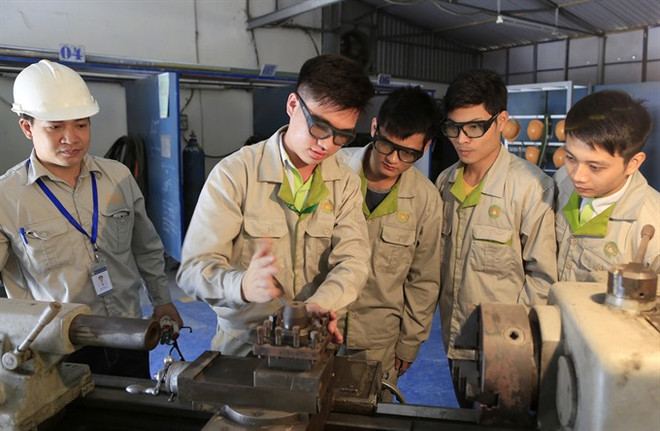Hanoi (VNA) – The share of job seekers who are using formalchannels (employment services) is growing in Vietnam, but still accounts for aminority of the job search channels used. Most jobs in the country today arefilled through personal contacts, according to the General Statistics Office(GSO).
A study by the International Labour Organisation (ILO) with GSO data found thataround 40 percent of employed young people had found their jobs by askingfriends and family.
Valentina Barcucci, ILO Vietnam’s Labour Economist, said that the higher theeducation and training attainment of a job seeker, the more likely they are torely on employment services.
The strengthening of employment services is also important in the context of Vietnam’srole within ASEAN, which the country will chair in 2020.
According to ILO, Vietnam has made an important step in labour marketdevelopment by ratifying ILO Convention 88, known as the Employment ServiceConvention. Employment services promote an efficient development, integrationand use of the labour force.
To achieve this objective, they serve two groups of direct clients – workers (which they assist to find suitable employment) and employers (whichthey assist to find suitable workers). Employment services are therefore at theintersection of two networks of information – the one on job applicants and theone on job vacancies.
They are at the core between supply and demand for labour.
“As Vietnam is experiencing its economic transformation, the ratification ofthis convention which will promote the development of employment services is asignificant step,” said Barcucci.
“Industrialisation, integration into regional and global markets, and increasedforeign direct investment have all been changing the labour market into onewhere employment opportunities, qualifications and skills requirements becomemore formal. Accordingly, the methods for matching job offers with takers needto become more effective, accessible, and used,” she said.
In a country in transformation like Vietnam, labour market information is avital source of data on how the labour market is evolving.
Employment services can produce a large set of labour market informationthrough administrative data coming from the profiles of job seekers,occupations in demand by employers and therefore skills needs, duration of jobsearch by profile of job seeker, hard-to-fill vacancies, and others.
These data all help answer questions such as What skills do employers lookfor? Do job seekers find jobs that match their qualifications? Who needs tolook for jobs for relatively longer periods? What skills are missing – and yetneeded - on the labour market?
“The answers to these questions represent an important input forpolicy-makers,” said Barcucci.
“These data can be used to periodically revise employment policy and skillsdevelopment policy, to help workers adapt to labour market changes, andemployers find the skills that they need, for a more inclusive society and astronger economy.”
Convention 88 states that one of the objectives of employment services is to facilitateoccupational and geographical mobility. In the context of the ASEAN CommunityVision 2025, the chart towards economic and cultural integration, ASEANenvisages increased openness in a number of areas, including the ‘seamlessmovement’ of skilled labour.
“The ratification of the Convention is a critical step towards strengtheningemployment services in the country. However, it remains one step of the way,”Barcucci said while reaffirming ILO’s commitment to support the Government,workers’ and employers’ organisations in ensuring that policies and programmeswill follow to implement the Convention.
The ILO will also provide continuous assistance on institutional commitmentssuch as formal reporting on the implementation of Convention 88. The Conventionon Employment Service became the 22nd ILO Convention Vietnam has ratified.
By the end of 2019, Vietnam also plans to ratify Convention 98 on the Right toOrganise and Collective Bargaining – one of the remaining fundamentalconventions – and Convention 159 on Vocational Rehabilitation andEmployment (Disabled Persons).-VNA






























